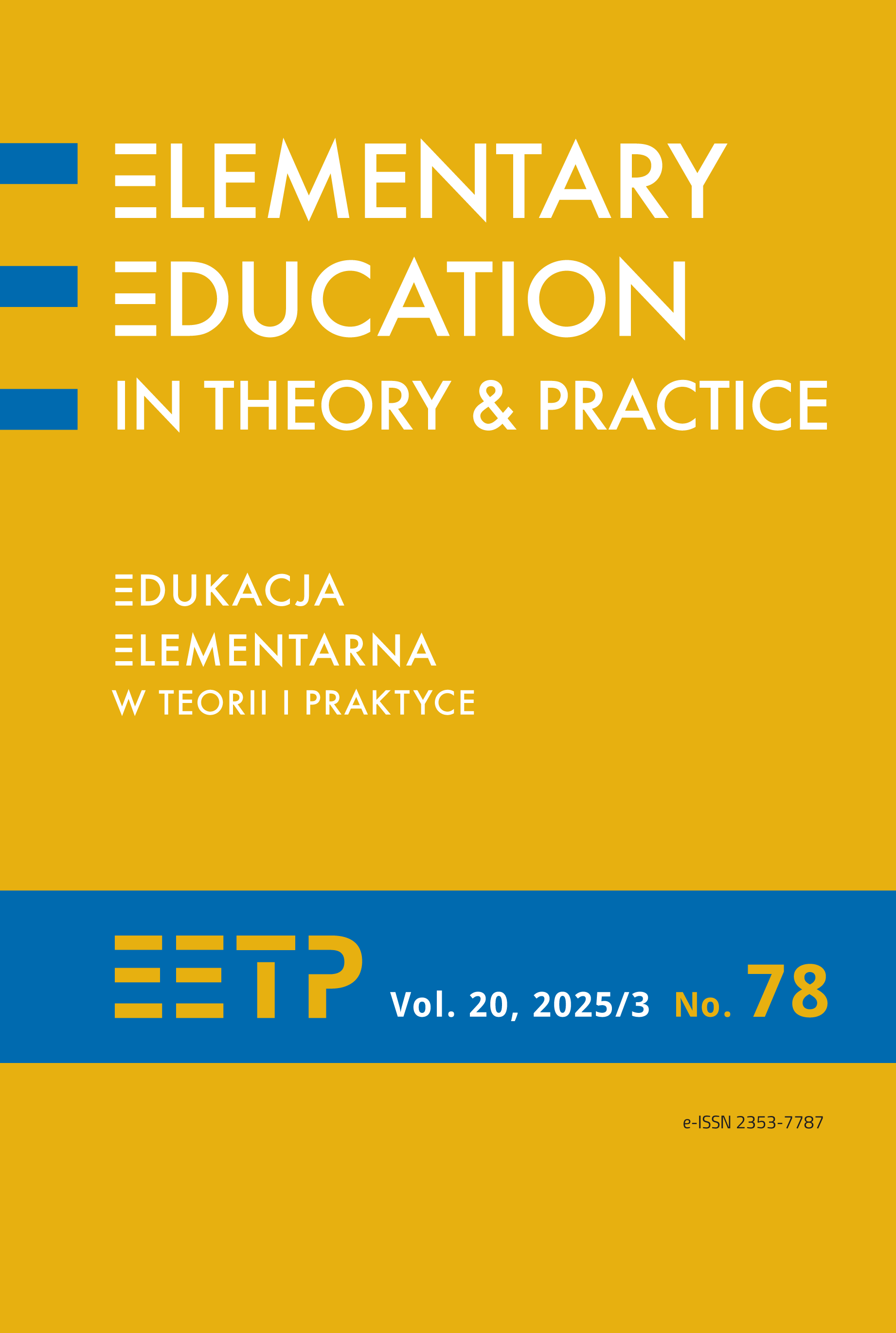Wprowadzenie
Abstract
The sustainable future proposed by the 2030 Agenda requires reorienting education from subject-based teaching to supporting cross-curricular competences development involved in solving complex, interdisciplinary problems. These competences can be called differently in pedagogical literature: transversal competences or competencies of the 21st century (skills that are typically considered as not specifically related to a particular job, task, academic discipline or area of knowledge and that can be used in a wide variety of situations and work settings); STEAM competences, 4C competences (from English: communication, collaboration, critical thinking, creativity), although the latter are also developed in 5C (character) or 6C (citizenship). Although the acronym does not work well when translated into Polish, it perfectly reflects the essence of the problem - today's children need different knowledge and skills than their ancestors. The best that a modern school can to a child is the ability to learn independently, critically evaluate and select available information, creative problem solving, cooperation and communication with others, emotional and cognitive self-regulation. Developing such meta-competences is possible from the earliest childhood, and according to many researchers, it is also consistent with the specificity of a young child's learning - learning through discovering and inquiring, multi-sensorial experiencing of the world, asking questions, doing and testing hypotheses, formulating conclusions. Is such a reorientation of education from textbooks and worksheets towards the holistic development of the child possible in the Polish educational system, and to what extent (or rather in what way)?
References
Katz, L.G. (2010, maj). (2010, May). Standards of experience. Community Playthings. https://www.communityplaythings.com/resources/articles/standards-of-experience
Lamb, S., Maire, Q. i Doecke, E. (2017). Future Frontiers analytical report: Key skills for the 21st century: An evidence based review. State of New South Wales (Department of Education). https://www.researchgate.net/publication/331952440_Key_Skills_for_the_21st_Century_An_evidence-based_review
OECD. (2018). The future of education and skills: Education 2030. https://www.oecd.org/content/dam/oecd/en/publications/reports/2018/06/the-future-of-education-and-skills_5424dd26/54ac7020-en.pdf
OECD. (2019). OECD future of education and skills 2030: Conceptual learning framework. Transformative competencies for 2030. https://www.oecd.org/content/dam/oecd/en/about/projects/edu/education-2040/concept-notes/Transformative_Competencies_for_2030_concept_note.pdf
World Economic Forum. (2025). Future of jobs report: Insight report. January 2025. https://reports.weforum.org/docs/WEF_Future_of_Jobs_Report_2025.pdf
Copyright (c) 2025 Elementary Education in Theory and Practice

This work is licensed under a Creative Commons Attribution-NoDerivatives 4.0 International License.
- When submitting a text, the author declares that he/she is the Author of the article (hereinafter referred to as the “Work”) and:
- he/she owns the exclusive and unlimited copyright to the Work,
- is entitled to dispose of the copyright to the Work.
Declares that it does not infringe any third party copyrights or legal rights.
Declares that there is no conflict of interest.
2. At the same time, the Author grants the Ignatianum University in Cracowa royalty-free, non-exclusive and territorially unlimited licence to use the Work in the following fields of exploitation:
- recording the Work in a hard copy, as well as on a digital or magnetic medium;
- reproduction of the Work using any technique, without limitation of the number of editions or copies;
- distribution of the Work and its copies on any medium, including marketing, sale, lending, and rental;
- introduction of the Work into a computer memory;
- disseminating the Work in information networks, including in the Internet;
- public performance, exhibition, display, reproduction, broadcasting and re-broadcasting, as well as making the Work available to the public in such a way that everyone can have access to it at a time and place of their own choosing;
- within the scope of dependent rights to the Work, including in particular the right to make necessary changes to the Work resulting from editorial and methodical development, as well as to translate the Work into foreign languages;
The licence is granted from the moment of the transfer of the Work to the Ignatianum University in Cracow. The Ignatianum University in Cracow is entitled to grant further sub-licences to the Work within the scope of the right granted. The licence is time-limited and it is granted for a period of 15 years, starting from the date of its granting.
Authors are permitted and encouraged to publish their text online (e.g. in their institution’s repository or on the institution’s website) before or during the submission process as this may lead to beneficial exchanges, as well as earlier and greater citation of the published text (See The Effect of Open Access). We recommend using any of the following portals of research associations:
- ResearchGate
- SSRN
- Academia.edu
- Selected Works
- Academic Search




